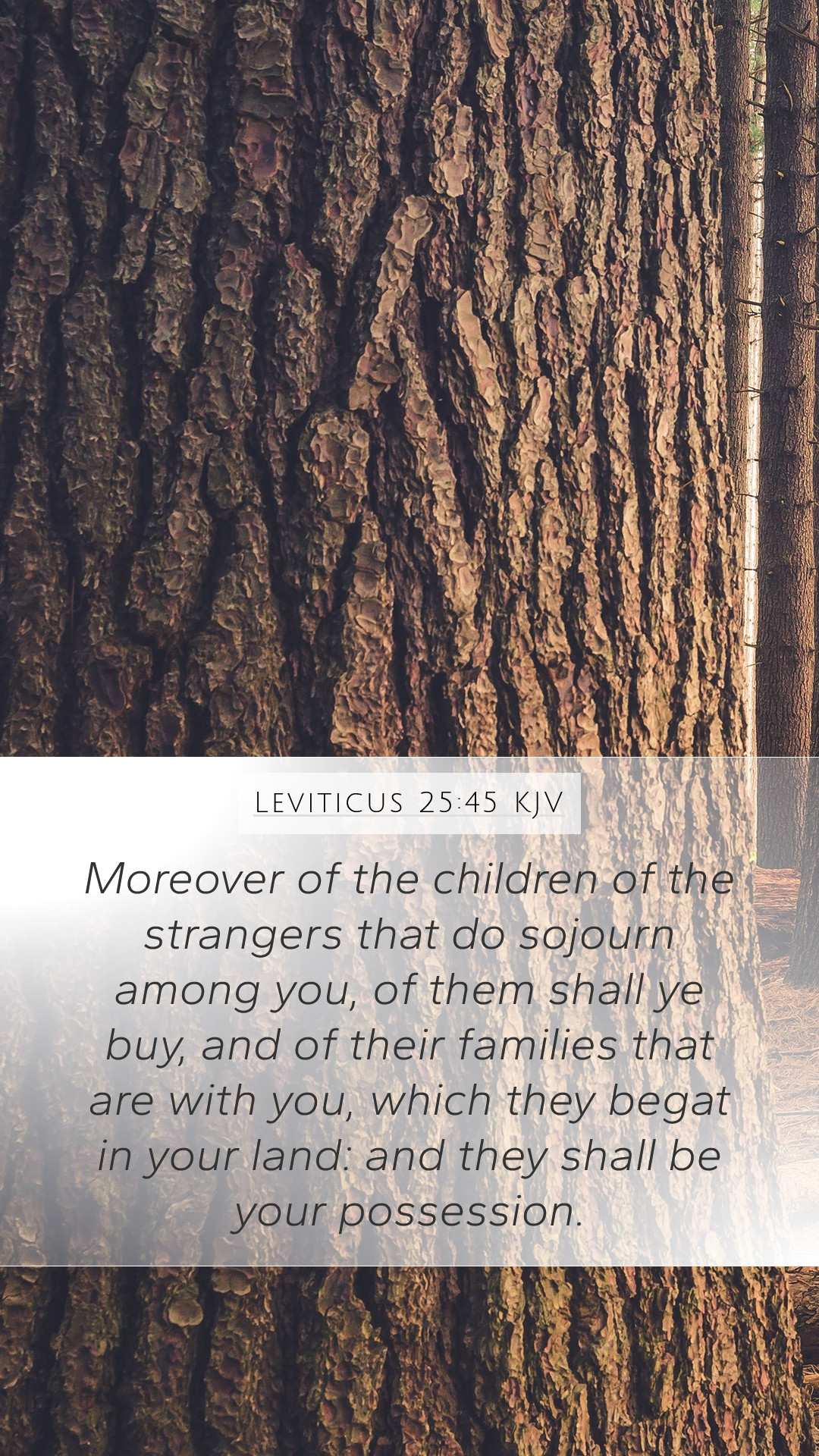Understanding Leviticus 25:45
Leviticus 25:45 states: "Moreover, of the children of the strangers that do sojourn among you, of them shall ye buy, and of their families that are with you, which they begat in your land: and they shall be your possession."
Verse Explanation and Commentary
This verse is part of the broader context of the laws concerning jubilee and servitude in the Old Testament. Here are some insights derived from public domain commentaries:
-
Matthew Henry's Commentary:
Henry explains that this verse reflects God's provision for the Israelites' social structure, allowing them to acquire servants and bondmen from foreign nations. This practice not only established a social hierarchy but also ensured that the Israelites maintained economic stability. Servants were to be integrated into the Israelite community while still retaining their original identity.
-
Albert Barnes' Notes:
Barnes highlights the implications of this verse concerning the rights and status of foreign sojourners. These individuals and their descendants could become part of the Israelite community, emphasizing inclusivity despite their foreign origins. The emphasis on family structures suggests that every household played a significant role in the society at large.
-
Adam Clarke's Commentary:
Clarke points out that the Israelites were given clear guidelines about acquiring servants, which differentiated between the Israelite and foreign people. He articulates that this practice was meant to create a societal structure that maintained order and legal frameworks about servitude in Israel.
Key Themes and Insights
The key themes in Leviticus 25:45 can be elaborated as follows:
- Economic Relationships: The verse emphasizes economic relationships between Israelites and foreigners, indicating that such practices were part of societal norms.
- Inclusivity: By allowing foreigners and their families to be integrated, it suggests a form of acceptance within the confines of the Israelite community.
- Divine Order: The regulations on servitude and ownership demonstrate God's intent for order and justice in societal structures.
Historical Context
Understanding the historical context is crucial to interpreting this passage effectively. During the time of the Israelites, servitude was a common practice, often as a result of war, poverty, or economic necessity. Such systems were rooted in the agricultural economy of ancient Israel, where land ownership and familial lineage played pivotal roles in community structure.
Application of the Verse Today
For modern readers, Leviticus 25:45 raises questions about social justice, economic fairness, and inclusivity. It prompts reflection on how we engage with others in our communities, especially those who may be different from us. It serves as a reminder of the importance of treating others with respect and dignity, regardless of their background.
Cross References
- Exodus 21:2-6: Discusses the treatment of Hebrew servants.
- Deuteronomy 15:12-15: Addresses the release of servants in the seventh year.
- Leviticus 25:39-43: Offers additional laws about treating fellow Israelites as hired workers rather than as slaves.
- Numbers 35:15: Mentions cities of refuge for both Israelites and foreigners.
Conclusion
In conclusion, Leviticus 25:45 serves as an important reminder of God's laws governing society, reflecting deeper truths about economic relationships, social structures, and the divine principles that govern human interactions. Through careful Bible study and insight from respected commentaries, believers can find valuable messages applicable to contemporary life, contributing to a deeper understanding of Scripture.


